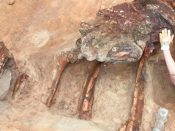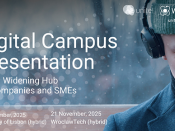Por Santiago Ginnobili (CEFHIC-UNQ-CONICET / UBA).
Desmond and Moore suggest that the key to understanding Darwin’s Descent of Man is his abolitionist bias and his advocacy that human races are subspecies (i.e., his advocacy of monogenism). Without disputing that such a bias may have been of some importance, some dispute the centrality that Desmond and Moore give to such biases in understanding Darwin’s works. Starting from an internalist reading of Darwin’s work, in this talk I will attempt to lend plausibility to Desmond and Moore’s thesis by showing possible links between abolitionist ideology and the explanation it provides for the origin of races and expressions of emotion. I will try to show that the strongest links that can be established are not through the defense of monogenism, but through a contingent view of evolution that is incompatible with the framework presupposed in the racist literature of the time, that racial differences are superficial, and that all races share the same mental capacities.
Bio: Santiago Ginnobili is professor of Philosophy at the University of Buenos Aires and at the Faculty of Social Sciences of the National University of Quilmes. Researcher at CONICET – National Council for Scientific and Technical Research. Member of CEFHIC - Center of Studies on Science and Technology and of ANFIBIO - Group of Philosophical Analysis of Biology (www.anfibio.com.ar). His main field of work is philosophy of science and philosophy of biology. He is also interested in how work in philosophy of science can contribute to its teaching and communication. He is the author of several papers on functional biology, the Darwinian revolution, metatheoretical structuralism, evolutionary biology, teaching biology, among others. He has published the book (in Spanish) La teoría de la selección natural - Una exploración metacientífica (The Theory of Natural Selection - A Meta-Scientific Exploration), published by the National University of Quilmes (https://ediciones.unq.edu.ar/425-la-teoria-de-la-seleccion-natural.html), and he is also the author of the children’s book about Darwin’s ideas: Una gran familiar (A Big Family, https://www.iamique.com.ar/producto/una-gran-familia/), which has been translated into several idioms (including Portuguese) by Kalandraka under the title En continua evolución (Em contínua evolução, in Portuguese, https://kalandraka.com/em-continua-evolusao-portugues.html).





















